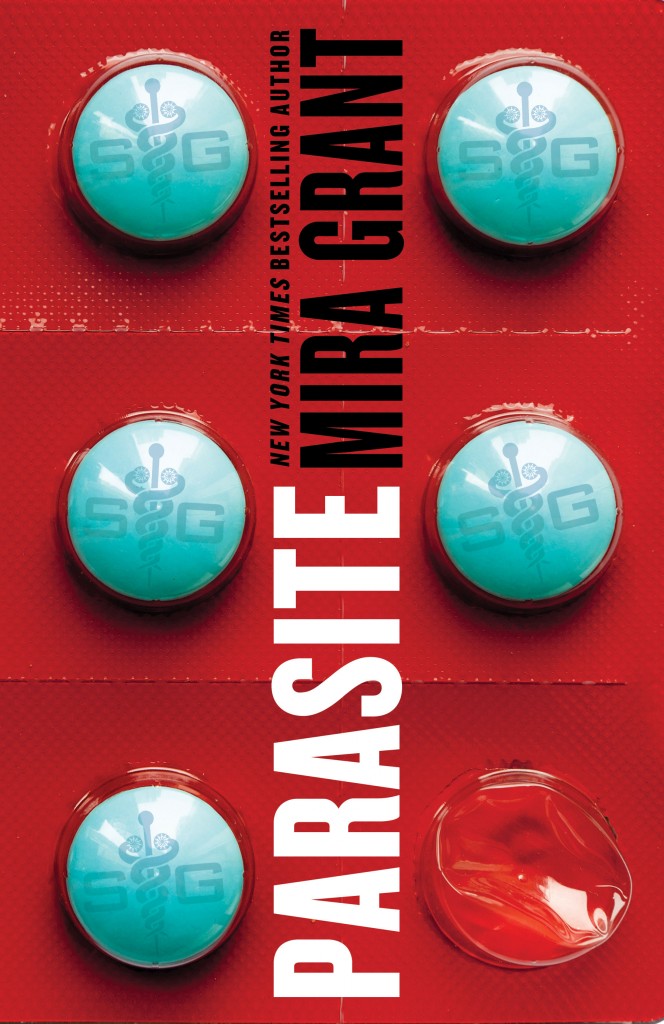Tagged with dystopia
Parasite
Attempting to fill the void left by her Newsflesh Trilogy, Mira Grant gives us another near-future made dystopic by a health cure gone wrong. This first entry in the Parasitology series brings us likeable characters, a quasi-believable medical threat (though to be honest far less plausible than how she envisioned zombies), corrupt business practices, mad egomaniacal scientists, strained family relationships and two sweet dogs.
author gender:
book type:
medium:
recommendation:
Into the Forest
Sort of like the movie 2 Days in New York that I watched last week, I am not sure if I admired or hated this book. The writing is good, I guess. It's sophisticated, but not showy, but the characters might be a little hard to love.
author gender:
book type:
medium:
Requiem
I think I've read too many YA dystopias lately, because I can barely keep them straight. This one is the end of the trilogy that started with Delirium. The concept, that love is regarded as a disease, and that people are surgically cured upon turning eighteen, is pretty cool. In Requiem we find our heroine wondering if she'd prefer to be happy (cured) or free (starving in the Wilds). Frankly I often wonder the same thing, regarding how medicated we modern folk are.
author gender:
medium:
Prodigy
Following Legend, Prodigy is a tale of a divided, dystopic America, from the perspective of the commie side's two most notorious outlaws, both fifteen. They discover that the corporate side is no heaven either, nor is the resistance of the former that they've been drawn into supporting.
author gender:
medium:
recommendation:
author demographic:
free:
Dead and the Gone, the
A companion to Life as We Knew It, The Dead and the Gone tells us what it was like in Manhattan after the moon got knocked out of place and messed up life on Earth.
author gender:
medium:
recommendation:
Life as We Knew It
My holds hadn't come in, so I grabbed this book from the YA shelf at the Tompkins Square branch of NYPL because I remembered the name Susan Beth Pfeffer from reading her YA books when I actually was a young adult. Weirdly the book didn't list all of her earlier works, just one recent publication, so I wasn't sure I had the person I remembered. I was shaky on her name and thought maybe Susan was the daughter of the Someone Beth Pfeffer I was thinking of. The Wikipedia page I viewed today didn't indicate any of the works I remembered either, but with a little digging, I found that she is indeed the author of classics like Marly the Kid, The Beauty Queen and Starring Peter and Leigh, none of which has a science fiction theme, btw.
author gender:
free:
medium:
recommendation:
Blackout
I anticipated this final entry to the Newsflesh trilogy with perhaps greater excitement than I did Harry Potter and the Deathly Hallows and Mockingjay, though that may be that my desire was fanned by NYPL's dragging its ass on getting copies.
author gender:
book type:
recommendation:
Insurgent
Insurgent starts off immediately where Divergent ended, so if for some reason you read Divergent first, you're kind of hosed. Even having read Divergent fairly recently, I couldn't always remember who everyone was in the first half of the book, and then in the second half I didn't always follow the action so easily. Sometimes authors get so caught up in their characters and stories that they forget that you don't know and love their children as much as you do. Don't get me wrong; Insurgent is a great read, but it does have that middle-of-a-trilogy thing going on, where even at 525 pages, it's really just a vehicle to get you from the beginning to the end.
author gender:
free:
medium:
Divergent
In Roth's future dystopia, people are divided into five factions, based on shared aversions to particular evils (selfishness, cowardice, lies, divisiveness, and ignorance). They get to decide at age 16, whether they want to stick with the faction their parents chose or try their luck with a new one. If it were me, I'd pick Erudite, the faction that thinks that ignorance is the world's greatest problem, but it turns out that in Roth's vision, the Erudite are fascistic.



